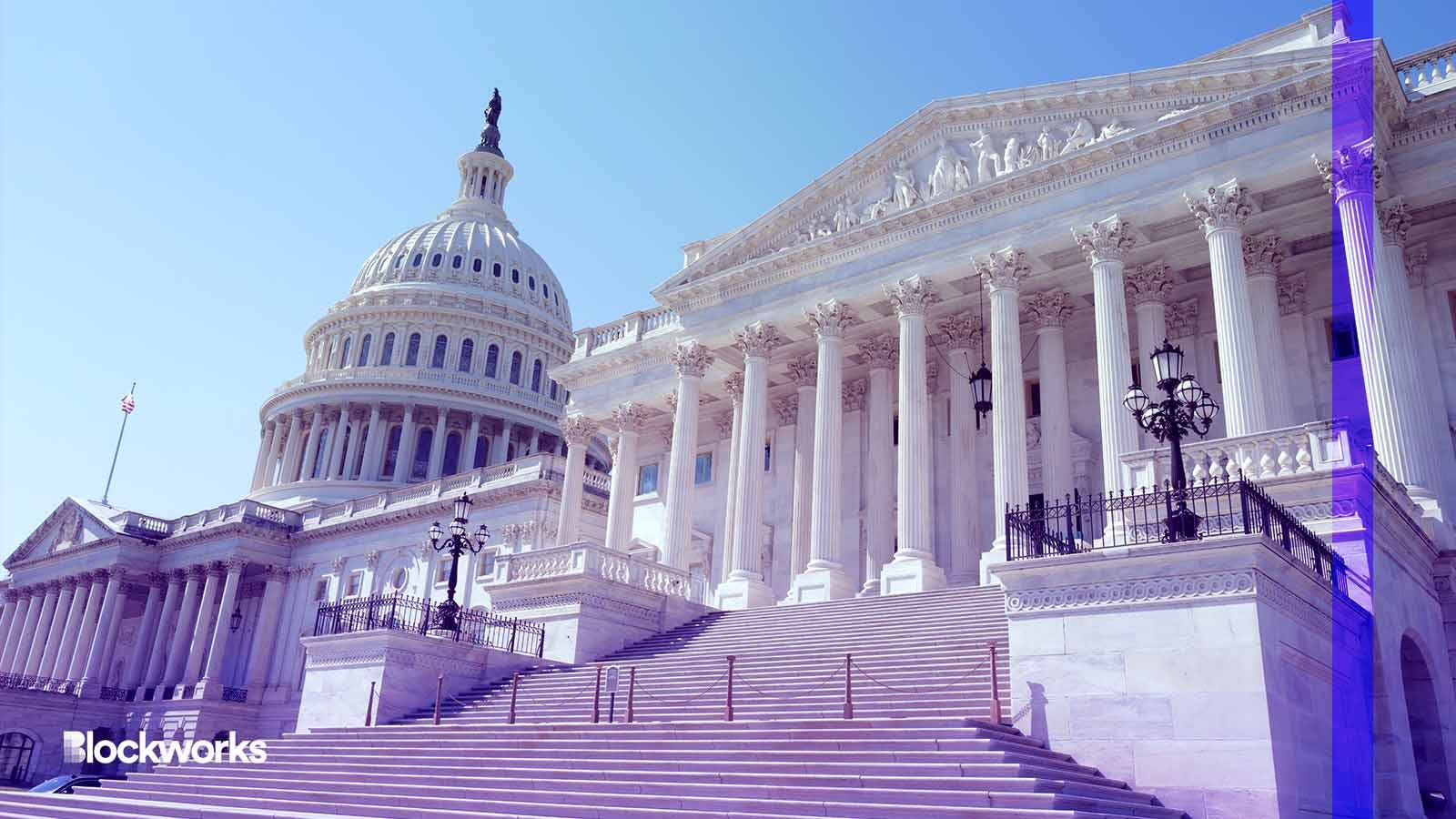House Hearings Reveal Deepening Party Divide
Parties struggle to get on the same page after more hours spent in crypto hearings

Phil Pasquini/Shutterstock modified by Blockworks
House representatives gathered last week to discuss regulatory gaps in crypto and discuss which regulatory agency should be taking the lead. The hearing revealed what areas industry members should keep an eye on for policy, and uncovered some of the main points of contention between political parties.
On Wednesday, digital asset subcommittee members from the House Financial Services and Agriculture committees gathered to hear from six witnesses on the state of crypto regulation. Main topics of discussion included identifying the respective roles of the SEC and CFTC and establishing definitions for “digital commodity” and “digital security,” both of which have turned out to be highly politicized.
Just after the hearing adjourned, a leaked internal memo circulated amongst House Financial Services Committee Democrats revealed the party advised lawmakers to advocate for the SEC as the primary regulator overseeing crypto. The document praised SEC Chair Gary Gensler for his recent enforcement action streak this year, which is on pace to eclipse 2022’s record number of 30 crypto-related actions.
Crypto industry members find the suggestion troubling, as SEC Chair Gary Gensler continues to take an aggressive stance on crypto token classification. Gensler has said he believes “most” cryptocurrencies are securities, although he faced additional criticism when he was unable to confirm ether’s status during an April Hill testimony.
Political insiders though caution industry proponents from taking anything in the leaked memos too seriously.
“Staff memos are created by both parties ahead of every hearing. These memos on the Hill are standard, but leaking them is not,” Ron Hammond, director of government relations at the Blockchain Association, said. “It is not the position of the entire party, just the lead member of that party on the committee.”
Most Republicans and some Democrats, including Ritchie Torres from New York, support allowing the CFTC to oversee crypto commodity spot markets, including bitcoin and potentially ether, for now.
Republicans also support having Congress step in to establish definitions for crypto securities and commodities, while most Democrats, including Maxine Waters, D-Cali., and Stephen Lynch, D-Mass., support Gensler’s stance that most tokens are securities.
Neither side of the aisle however presented any clear test or strategy for determining a token’s status, however. Former CFTC Chair Timothy Massad, a witness on Tuesday, has also said he is unable to determine whether ether is a security, adding additional uncertainty around the issue.
Committee Republicans have still not formally introduced their stablecoin bill draft to the floor, with several members noting that it is very much a work in progress.
Waters during an April hearing on stablecoins slammed Republicans for not addressing Democratic concerns in their current draft stablecoin bill.
The draft “in no way recommends the final work on stablecoins by negotiations between the two of us,” Waters said, adding that Democrats will have to “start from scratch.” In the four weeks since the stablecoin hearing, neither Waters nor her Democratic colleagues have released a draft or timeline for a potential bill.
On Wednesday, though, Waters took an apparently softer approach, noting in her prepared testimony that issues surrounding crypto “should be bipartisan concerns.”
“These should be bipartisan concerns, and legislation to address them should have a path to the president’s desk,” Waters said. “I hope this Congress, we can quickly return to developing legislation together.”
Get the news in your inbox. Explore Blockworks newsletters:
- The Breakdown: Decoding crypto and the markets. Daily.
- 0xResearch: Alpha in your inbox. Think like an analyst.






